How to Follow the Transportation Debate
And why a real solution will probably never be reached.
Here’s a scorecard to help in following the transportation finance debate.
There are three players: Governor Scott Walker; the Assembly Republican caucus; and the Senate Republican caucus.
As of Friday morning (things can and will shift on a daily basis), they held mutually exclusive positions. The Cliff’s Notes version:
- The Assembly GOP has an agenda based on a clear understanding of the facts. (Yeah, I think theirs is the best approach.)
- Governor Walker’s agenda is driven by short-term political motives.
- The Senate GOP is adrift.
Added to this mix is the intangible fact that (1) Governor Walker and Assembly Speaker Robin Vos are personally at odds and (2) the Senate and Assembly have a historic tradition of clashing.
Background
Two decisions made in the previous decade explain the current situation.
First, the Doyle Administration made the correct commitment to rebuilding SE Wisconsin freeways. These Eisenhower era roads were reaching the end of their useful life. The need to rebuild was unavoidable.
Second, in 2006 the state froze the gas tax. Historically it had been indexed to grow with inflation.
These were irreconcilable decisions. In real terms gas tax revenue has been stagnant at a time when the state has embarked on a multi-billion reconstruction and modernization project. To partially compensate for revenue shortfalls, under Jim Doyle and now Walker the response has been a multi-billion dollar borrowing binge. As a result, the share of transportation fund revenue devoted to debt service has tripled. Think of a family with $75,000 in income that uses a credit card to live a $100,000 lifestyle, year-in and year-out.
A series of expert reviews, including one by a task force that Walker and the GOP legislature created in 2011, all reach the same basic conclusion. Namely, stagnant current law revenue falls far short of the cost of (1) maintaining non-freeway state highways and (2) rebuilding Interstates mileage. (My review of the data suggests the one billion dollar biennial gap often cited in the media is too low.)
The debt spree has caught up with the state. So much gas tax revenue is needed for debt service that maintenance of non-freeway roads is way behind schedule. At spending levels proposed by Governor Walker, the Department of Transportation estimates the share of state highways in poor condition will double in a decade. Freeway rebuilding has been so scaled back that the nonpartisan Legislative Fiscal Bureau estimates it would take SEVEN DECADES at current spending levels to finish the job. What that means, in practical terms, is an endless array of short-term repaving projects such as the $40 million job that will occur next year on I-894 in Milwaukee. It’s akin to putting new shingles on a house you know will be torn down.
Governor Walker
Summarizing the Governor’s position is hard because he has taken so many different ones.
Early in his tenure — before even being sworn in — he wrote to the federal government describing a major transportation fund shortfall. At various points he publicly described his directive to former transportation secretary Mark Gottlieb to explore ways of increasing revenue.
Things changed after his 2012 recall. To advance his 2014 Wisconsin political agenda and his national ambition, the Governor burnished his image as a tax-cutter. He discarded his earlier recognition that current law revenue was inadequate. He thumped his chest in opposition to a gas tax increase and instead proposed billions of dollars in new debt.
Last year the Governor effectively blew off the state’s commitment to freeway reconstruction. Playing the anti-Milwaukee card he told an Ashland listening session that a gas tax increase could be avoided by shutting down Milwaukee projects. He reinforced that message by telling a Northern Wisconsin TV station that Milwaukee projects were on hold “for the forseeable future.” (Not to be burdened with consistency, at the same time he was making a written pledge to the federal government to proceed with the E-W I-94 project in Milwaukee, a pledge he then reneged on in his most recent budget proposal.)
The interest of electronic giant Foxconn in a possible SE Wisconsin location has the Governor pivoting yet again. In a letter to legislators this week he said, “Interstate 94 North/South, the Zoo Interchange and Interstate 94 East/West are high profile projects in southeastern Wisconsin.” These are the projects he brushed aside a year ago.
The Governor’s repeated claims that his highway plans are sufficient directly contradict at detailed analysis of their impact by….Walker’s own transportation department.
Given his veto power, the Governor holds most of the cards in the current debate. He doubled down during an appearance last month before the Assembly GOP caucus, telling its members that future transportation budgets would resemble his current one if he is reelected next year. He explicitly ruled out a gas tax increase, now and in the future.
Assembly Republicans
Assembly Republicans accept the well-documented conclusions contained in multiple expert reports. They correctly argue that without new revenue (1) the share of non-freeway miles in poor condition will grow and (2) Interstate reconstruction will be subject to costly and indefinite delays.
In the short-term, the Assembly GOP caucus opposes new debt without some form of new revenue for repayment. Given Walker’s position on the gas tax, the Assembly leadership floated the idea of a heavy truck tax. It gained private endorsement from Walker and Senate GOP leadership, but that evaporated in a barrage of motor carrier resistance and the public opposition of several Senate Republicans.
To illustrate the obvious inadequacy of current law revenue, the Assembly’s bargaining position in the current debate is the so-called “base budget.” This essentially is Walker’s budget shorn of new debt. It would require some projects to be curtailed and others to be halted.
Senate Republicans
Friday’s Journal Sentinel quotes Majority Leader Scott Fitzgerald as follows:
“In our caucus … there certainly is the idea we’re not going to support any new revenue because we believe there’s enough revenue in the system and believe that (the Department of Transportation) needs to be significantly reformed. We think there’s some money that’s in DOT that’s currently being wasted.”
At the same time it declares “there’s enough revenue in the system” the Senate GOP proposes a whopping $750 million in still more highway debt.
As for DOT waste, several GOP senators and an array of conservative commentators are fully invested in a false narrative about department mismanagement. This stems from a Legislative Audit Bureau report issued earlier this year.
Space limits preclude a true rebuttal of the bogus posturing that the audit has produced. Here’s the money quote (emphasis added):
“DOT generally had effective oversight of the processes for soliciting bids and awarding construction contracts and took steps to control construction costs, but it could take additional steps.”
As for the “additional steps” the co-chair of the Legislature’s Audit Committee said, “DOT potentially could have saved $191.9 million over 6 yrs if it had met its annual on-budget performance measure goals.” During the six-year period referenced by Senator Cowles overall highway program expenditures were $12.1 billion, with a b. The maximum savings cited by the senator thus represent less than 2 per cent of highway program spending.
In December of last year, Governor Walker’s transportation department issued a detailed report that identified $1.5 billion in one-time and ongoing savings from improved management and design of highway projects.
Here’s a link to the report. I previously have publicly and privately challenged DOT critics to identify and refute the accuracy of any savings identified, savings which are five times greater than the amount called out by Senator Cowles’ tweet. The response? Crickets.
What’s Needed?
A 10-cent increase in the gas tax would cost a typical motorist a paltry $5/month. Indexing should be restored. This would be enough to stop the bleeding.
Motorists in thirty-five other states pay more in gas tax and registration fees than they do in Wisconsin. On average, motorists in adjacent cold-weather states (Minnesota, Iowa, Illinois, and Michigan) pay 60 per cent more.
What’s Likely?
Given the Governor’s veto authority, the resolution to the current stalemate will fall far short of what’s needed. With the truck fee apparently dead, the options being bandied about by Walker and Senate Republicans all involve one-time fixes, i.e., more debt and perhaps a bonanza of one-time federal aid.
Tolling has been discussed. Existing federal law would limit it to a single interstate corridor. The first revenue would not come until 2022 at the earliest. The money could be used to retire debt incurred to rebuild that corridor. Any broader use of tolling would require an array of state and federal political decisions by Wisconsin and Congress.
So, kicking the can down the road appears a likely scenario.
George Mitchell is a former journalist who has held positions in federal, state, and county government and served as a consultant to various governmental and private sector groups.
Op-Ed
-
Why Vote for MPS Funding Referendum
 Mar 30th, 2024 by Nehemiah Edwards
Mar 30th, 2024 by Nehemiah Edwards
-
Wisconsin’s Very Own Rudy Giuliani Should Not Oversee Judicial Ethics
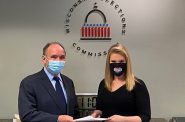 Mar 25th, 2024 by Richard Niess
Mar 25th, 2024 by Richard Niess
-
Voting at Wisconsin’s Universities Isn’t Easy
 Mar 17th, 2024 by Nicole Laudolff
Mar 17th, 2024 by Nicole Laudolff
Transportation
-
Paper Table Has Plan to Address Double-Parking
 Apr 9th, 2024 by Sophie Bolich
Apr 9th, 2024 by Sophie Bolich
-
Just How Bad Are Milwaukee’s Roads?
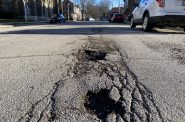 Apr 7th, 2024 by Graham Kilmer
Apr 7th, 2024 by Graham Kilmer
-
MPS Makes the Case for Referendum
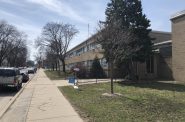 Mar 23rd, 2024 by Graham Kilmer
Mar 23rd, 2024 by Graham Kilmer

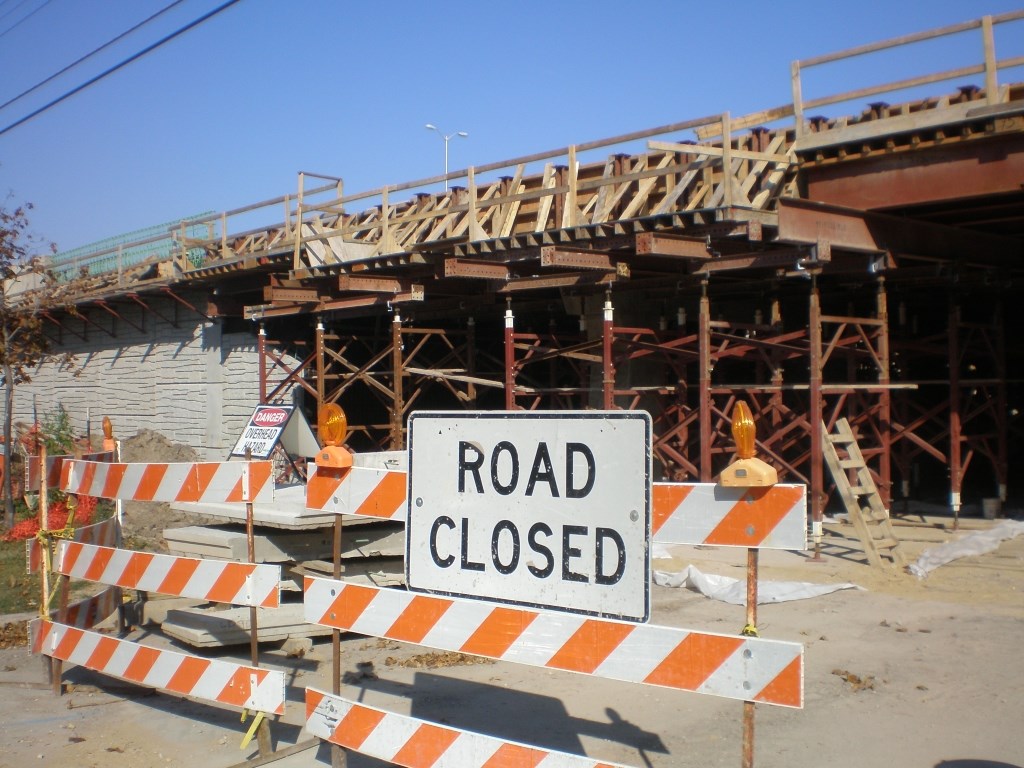
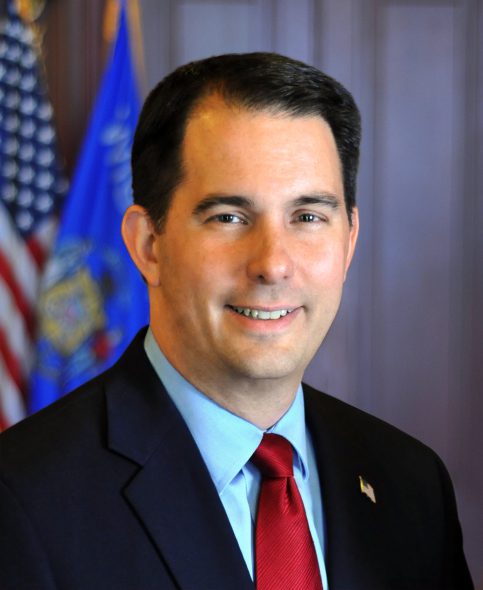
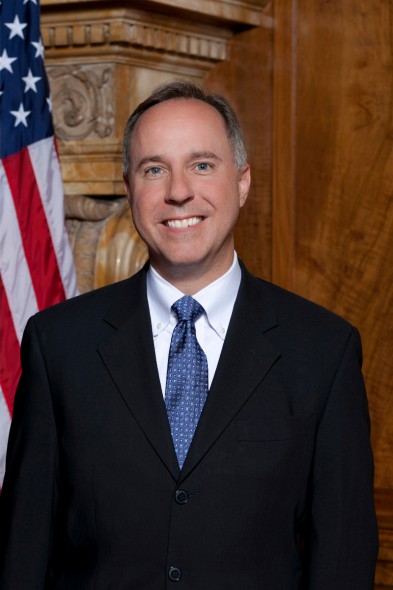
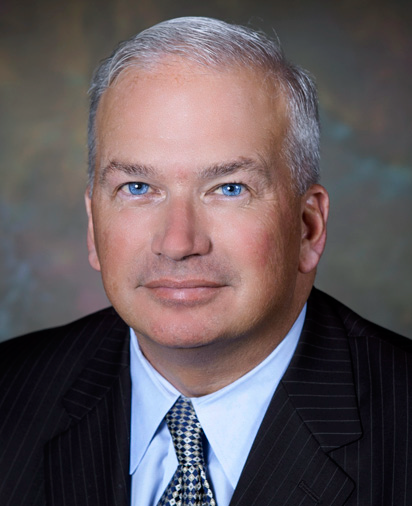














Small correction, the gas tax indexing for Wisconsin that was enacted in 1984 was not indexed to inflation but rather to be proportional to federal highway spending and total statewide gas sales. Since the federal spending outpaced inflation, gas taxes rose faster than inflation. That is why WI was top 10 in the nation for highest gas taxes when the indexing was repealed in 2006.
The authors proposal of raising the gas tax 10 cents a gallon would cost the average household over $100 a year… that’s a lot of money for low income families. It would also make Wisconsin the third highest in the nation for gas taxes. Gas taxes are also regressive and affect the poor far more than anyone else.
We should explore several other options or a combination there of:
Charging a mileage fee instead of a gas tax. As cars become more efficient they are still causing wear and tear on roads. To level the playing field, it’s time to find new ways to properly charge drivers for their vehicles.
Explore tollways to charge interstate traffic that may drive through without filling up with gas.
Implement the tractor trailer fees, as Bruce Murphy pointed out, they do the most damage to roads and should be charged accordingly. The costs will ultimately be passed on to consumers, as they should be, since the highways are worn down by their consumerism and demand for goods.
My small correction needs a small correction… it was only like that until 1998 when it changed to the consumer price index (estimate of inflation).
AG, thanks for the observations.
I believe tolling most/all of the 875 miles of Wisconsin Interstate highways is a good idea. The Reason Foundation’s Bob Poole recently conducted a webinar for the Wisconsin Policy Research Institute on the topic. You can see it at http://www.wpri.org/WPRI.htm. Under current law it’s not possible. The only current law option would be tolling on a single I-system corridor, say I-94 from ILL border to Milwaukee. The first revenue would not be available for several years and cold be used only on that corridor.
Volvo’s decision to go electric/hybrid reinforces your point about the need for an alternative to the gas tax.
Progress in any of these areas is very difficult when there is no political leadership from the Governor.
It seems to me a vehicle-mile-traveled tax should be considered
Gas taxes are certainly more regressive than income or property taxes but are less regressive than general sales taxes (or a flat annual vehicle fee). On the whole, drivers are wealthier than non-drivers.
It seems that some sort of mix of gas taxes indexed to inflation, vehicle-distance-traveled taxes, annual fees (especially if somehow tied to income or perhaps vehicle value), and tolls would both provide a relatively stable source of revenues and reduce the regressive nature of fees and taxes, especially if some of the revenues are used to expand and enhance public transportation.
I should add that I recognize that there are logistical and legal challenges (not to mention political challenges) that would have to be overcome to institute some of the revenues mentioned.
Eric S,
A comprehensive review of revenue options was conducted by a task force authorized by the Governor and Legislature in 2011. It would need to be updated to reflect new technology on tolling and various methods of charging per vehicle mile.
Walker threw the task force report into the garbage can. There will be no meaningful action unless his approach to the transportation finance issue changes. Until then Wisconsin is in a disinvestment mode.
The problem is that too much money is going to the WI DOT and their army of consultants/contractors and not enough money is actually spent repairing the regular roads we all drive on every day.
We need a law that takes all road spending off the property tax. There have been estimates that up to 50% of a typical property tax bill (except for school spending) is due to road repair and expansion.
Lower the property taxes and get drivers and truckers to pay for the roads. In the meantime, give everyone a 50% cut in their property tax.
I don’t understand why indexing a gas tax needs to be a political football for Walker. Who is he representing???